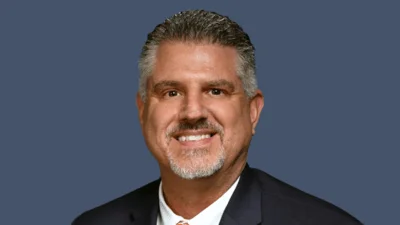Bay 4-H Club issued the following announcement on August 10.
Michigan State University researchers have been awarded a $3.75 million grant from the National Institutes of Health for research focused on decreasing cardiovascular disease risk morbidity and mortality for minority and low-income populations with diabetes mellitus.
Cardiovascular disease is the leading cause of diabetes-related morbidity and mortality.
The researchers have found that better patient engagement and communication between patients and physicians may improve medication adherence. This leads to better-controlled blood sugar, cholesterol, blood pressure, increased patient satisfaction with providers and, ultimately, decreased burden of illness on the patient and on the health care system.
Poor adherence to medication and prevention plan has been shown to be a significant factor in medical plans failing for individuals with CVD and DM. Between 21-42% of patients with Type 2 DM do not take blood sugar, blood pressure or statin medications as prescribed, contributing to increased death. Importantly, this issue is pronounced among the underserved and low resource populations, which show higher rates of chronic illness and lower medication adherence. The proposed program wants to close that gap through improved interaction with patients.
“If all patients have access to the same evidence-based care, are engaged and on the same page with their providers all the time, that will narrow the health care disparity gap and improve health outcomes for all,” said Department of Medicine, principal investigator on the grant and the Blanch B. and Frederick C. Swartz Endowed Professor of Medicine, vice chair for research in the Department of Medicine and Faculty Excellence Advocate for the College of Human Medicine.
The research team will evaluate the impact of its proposed patient activation program, which consists of the Office Guidelines Applied to Practice Model and mobile phone text messaging reinforcement, called Care4life. Together, the program will increase medication adherence and prevention of CVD among patients compared to texting alone. The study will enroll 378 patients in 16 teams in randomized Federally Qualified Health Clinics in Michigan.
“Chronic illness is a long-term project, a journey of 1000 miles, not a few feet,” said William Hart-Davidson, co-investigator on the grant and professor in the Department of WRAC and associate dean of Research and Graduate Education in the College of Arts & Letters. “If you’re walking across the country, you get lost. If you’re even one degree off, you end up in the wrong place. Adding those metaphorical road signs to course-correct and offer feedback in long-term chronic illnesses is imperative.”
The combination of improved face-to-face patient interaction and mobile reinforcement will heighten overall communication between patients and care providers, improving the frequency, accuracy and timeliness of communication while boosting shared goals and mutual respect.
“It’s important that we look at that time of self-management for patients between visits,” Hart-Davidson said. “We’ve found that there’s a significant difference in adherence when patients are given agency in their care. Our program creates that connection between patients and their plans at a deeper level.”
If successfully translated to clinical practice, the results of this research have the potential to significantly affect patient care, improving outcomes for DM and CVD. On a larger scale, the research that the MSU Office-GAP research team is implementing paves the way for shifting clinical practice across a spectrum of chronic disease where medication nonadherence is an issue.
“The point is to let the patient know that there is someone listening, that they’re not alone,” said Hart-Davidson. “We’re making a more reliable connection. It’s just enough of a nudge to reinforce the care plan.”
Additional MSU co-investigators and consultants on the grant include Karen Kelly-Blake, associate professor at the Center for Ethics and Humanities in the Life Sciences and the Department of Medicine; Joseph Gardiner, professor of epidemiology and biostatistics and statistics in the Department of Epidemiology and Biostatistics; Zhehui Luo, assistant director of biostatistics and associate professor of epidemiology and biostatistics; Eric Kasten, assistant professor in the Department of Radiology and director of the Biomedical Research Informatics Core; Margaret Holmes-Rovner, professor emerita of the Center for Ethics and Humanities in the Life Sciences; Michele Heisler, professor of health behavior and health education, and associate director for Global REACH at the University of Michigan; and Kim Eagle, Albion Walter Hewlett professor of internal medicine and director of the Frankel Cardiovascular Center at University of Michigan Health System.
Original source here.


 Alerts Sign-up
Alerts Sign-up